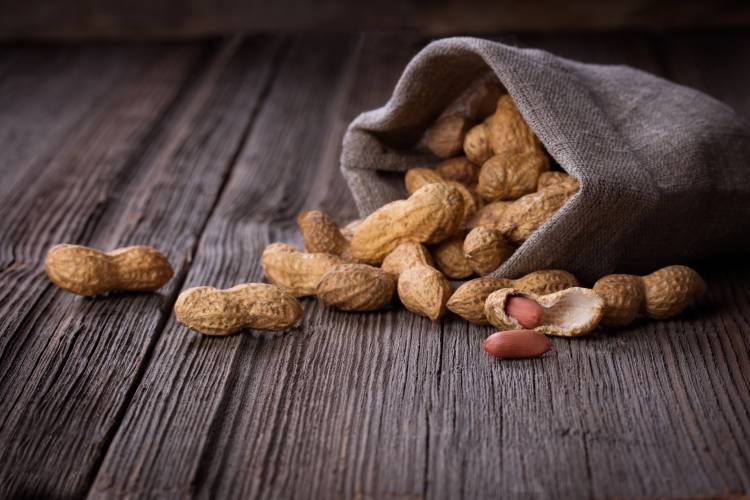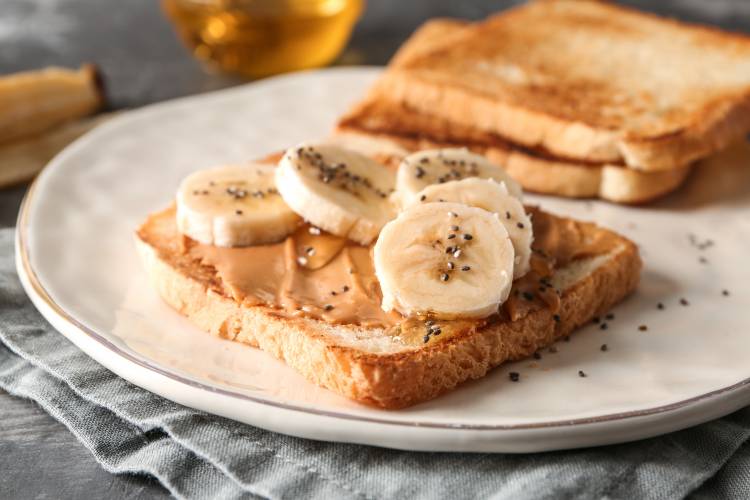The humble peanut: properties you simply cannot miss
Peanuts have more properties than you might imagine. Eaten in moderation, this legume can really improve your health. Don't miss out!
fresh food
Share

Did you know that peanuts are the most widely consumed nuts worldwide? You read that right. And not only that: botanically speaking, peanuts are actually legumes, although they are often classed as nuts owing to their composition. In any case, they are very famous for containing high levels of healthy fatty acids and vitamin E, vitamin B3 and folic acid. But that's not all! Now you know about their main advantages, let's delve into all the benefits of peanuts one by one.
Benefits of peanuts that you can take advantage of now
These are some of the reasons why you should start considering including peanuts in your diet:
- First of all, it is important to emphasize that we are talking about small amounts weekly (one or two handfuls a week), which should be eaten toasted, without salt, and always as part of a balanced and healthy diet including physical exercise.
- They improve mood. Peanuts are rich in tryptophan, an essential amino acid. This amino acid stimulates the production of serotonin, which boosts and improves mood.
- They are beneficial for pregnancy. During pregnancy women are recommended to increase the amount of folic acid in their diet. Peanuts therefore make the ideal companions, since they are rich in this nutrient.
- They are a source of fibre, which can help regulate blood sugar levels and keep the glycaemic index low. In addition, the magnesium they contain also plays an important role in controlling the glycaemic index.
- They boost memory. Certain nutrients in peanuts, such as vitamin 3 and niacin, contribute to preservation and correct functioning of memory.
- They help protect the skin thanks to their high vitamin E content.
- They regulate cholesterol. Yes, peanuts are good for cholesterol, as long as they are raw and unsalted, as they help lower bad cholesterol levels and maintain good cholesterol levels.
Ways to eat peanuts
These legumes can be consumed in many ways and can be included in many recipes.
- Raw, that is, straight from the shell: the most common way to consume them, because this way they are very easy to transport and contain no additives. They can also be roasted - what's more, roasted peanuts have enhanced antioxidant qualities, and moreover, roasting improves their flavour.
- Peanut butter is another very good way to consume this nut, and it can be added to smoothies and sweet recipes, or used as sandwich filler... The benefits of peanut butter depend on what other ingredients are used to make it. Avoid those that have an excessive amount of sugar in their ingredients. The best option is made from peanuts only.
- Peanut oil is not as well known as the other two ways of consuming peanuts, but it is just as beneficial. It is often used to prepare salads and other types of recipes.
As for the quantity, it is better to eat peanuts in moderation, since they are fairly high in calories (two or three times a week). It is also better to consumer them with no added salt: salted nuts should be eaten only occasionally, such as in the case of salted seeds or almonds.

Contraindications of peanut consumption
Peanuts have both health-giving properties and contraindications. It is also important to know about the latter. To note:
- Peanuts are not recommended for children under 3 years of age as they can cause heartburn, throat irritation and possible skin irritation.
- People who suffer from digestive problems should also avoid peanuts, as they could aggravate their symptoms.
- And finally, peanuts are one of the most common allergenic nuts found in our diet, so it is important to carefully supervise the first time they are eaten. Being allergic to peanuts can lead to irritation, stomach pain, and even diarrhea or vomiting.
After reading all this information, you decide you wish to include peanuts in your day to day, but remember to do so responsibly, since gorging on them is not a good idea either. In addition to peanuts, remember that there are also plenty of other nuts that you should include in your diet for their many benefits.






